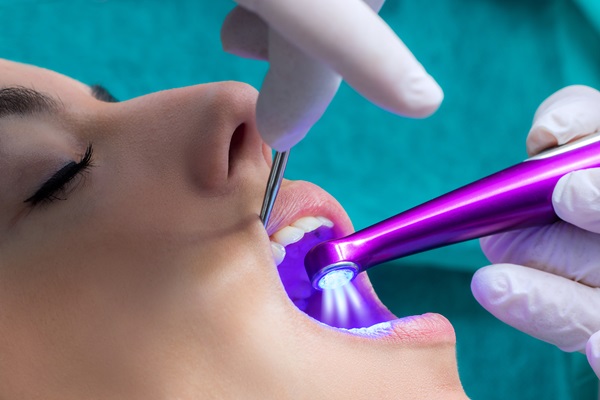Our Dentist Office Answers Your Questions About Oral Health
 As a dentist office, we want to keep your family in excellent oral health and spending time on dental education is one way to do so. We know that the more information you have about your teeth and gums, the more likely you are to remain cavity and infection free. As such, we take the time to answer questions and provide tips for how to eat a mouth friendly diet, the proper way to brush and floss, etc. so that you can stay in excellent health. During these conversations, there are some questions that tend to come up frequently and here are our answers to them.
As a dentist office, we want to keep your family in excellent oral health and spending time on dental education is one way to do so. We know that the more information you have about your teeth and gums, the more likely you are to remain cavity and infection free. As such, we take the time to answer questions and provide tips for how to eat a mouth friendly diet, the proper way to brush and floss, etc. so that you can stay in excellent health. During these conversations, there are some questions that tend to come up frequently and here are our answers to them.
Will having diabetes impact my dental care?
It can if your diabetes is uncontrolled. Every time that you have a diabetic episode, your white blood cells are inhibited from doing their job and fighting infection. This makes it difficult for your body to prevent gum disease and even tooth infections. If you need to have a procedure done, it also makes it harder for your body to heal afterwards. We want to know if you have diabetes and if you do if you have had any recent episodes. This way we can incorporate that information into your treatment plan. We may, for example, delay performing a non-essential procedure until your diabetes is under control.
I have a hard lump in my mouth. Should I be concerned?
If you notice that you have a hard lump, red and white bumps, or rough patches that won't go away, you should call our dentist office right away so that we can examine you. These can all be signs of oral cancer, and while they can also occur due to eating something irritating, they should go away if they aren't a serious problem. Lingering lumps or bumps can be cancerous so don't risk going without a dental exam. Early detection is key, and oral cancer kills one person every hour, so it's not worth the risk to ignore it.
Why is it that my teeth hurt when I eat something cold?
You may be suffering from sensitive teeth due to a loss of enamel. Erosion happens when you eat things that are high in acid, brush too aggressively or have poor oral health. It can also happen due to age. Unfortunately, once your enamel has eroded, it can't grow back. However, in our dentist office we can using solutions like bonding or dental crowns to protect your teeth and essentially replacing the enamel. This can prevent you from experiencing daily sensitivity and discomfort.
Is it normal for a filling to come loose?
Your fillings can last for a lifetime, however, there are no guarantees. In our dentist office, we have found that a tooth can experience additional decay after a filling has been placed. If it does, the existing filling will no longer be sufficient for covering the area, and it will become loose. In this situation, it should be replaced with a larger filling, or you may need to have a dental crown placed around your tooth instead.
Best Dentist > Family Dentist As a
As a 
